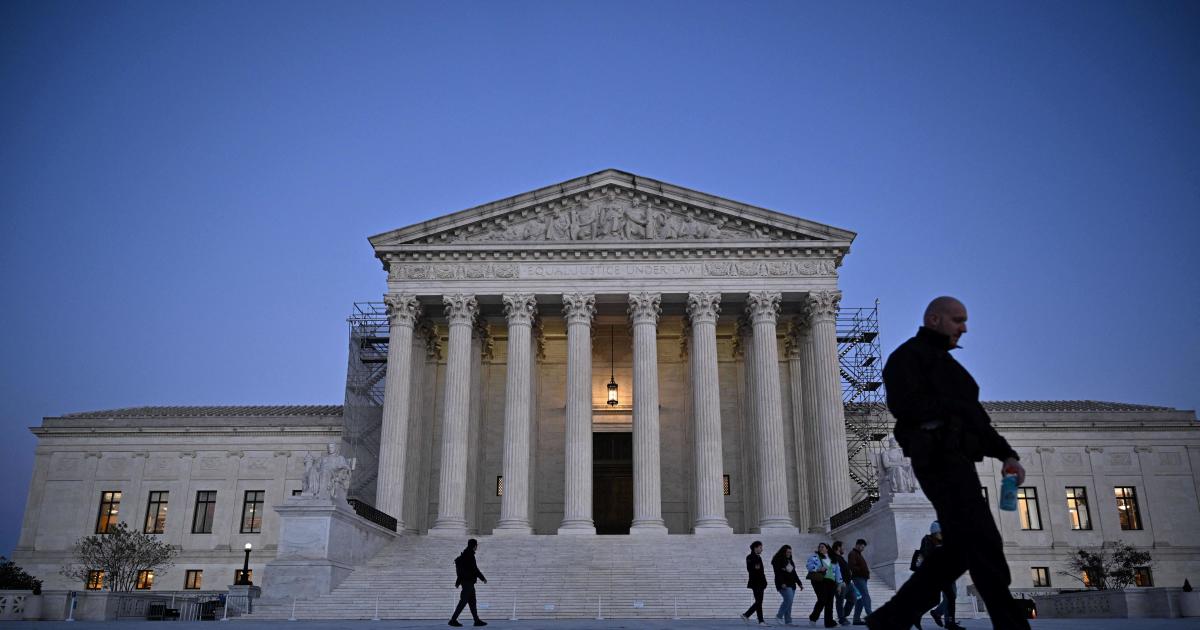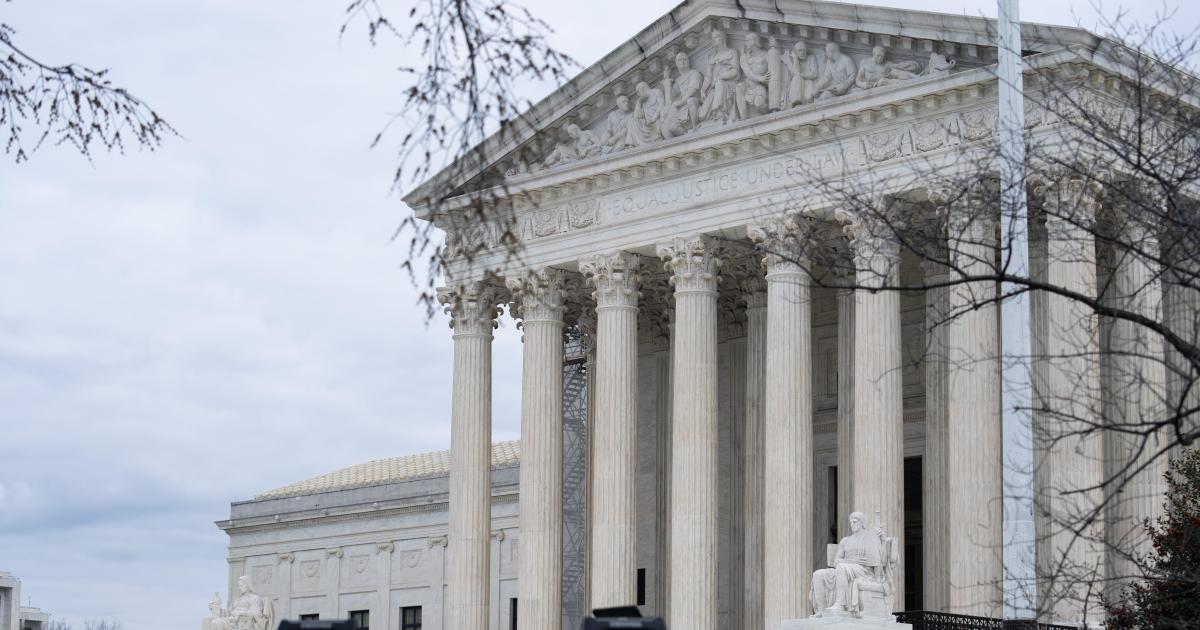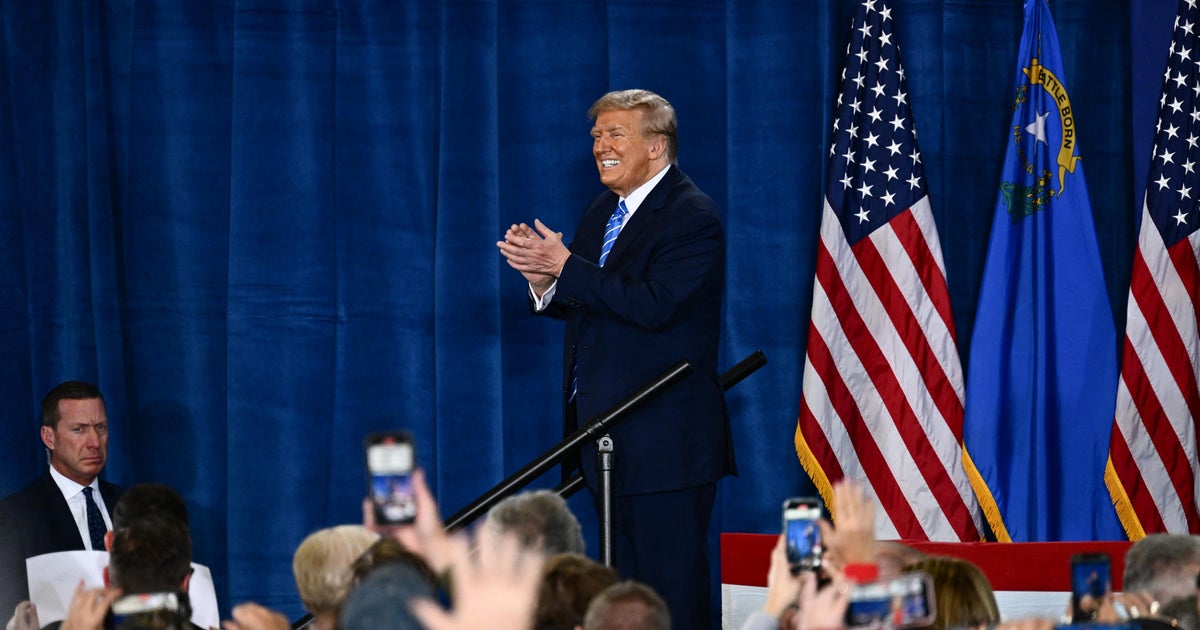Washington — The Supreme Court is poised to hear arguments Tuesday in a closely watched case that some warn could have sweeping implications for the U.S. tax system and derail proposals from some Democrats to create a wealth tax.
The dispute before the justices, known as Moore v. United States, dates back to 2006. That year, Charles and Kathleen Moore made an investment to help start the India-based company, KisanKraft Machine Tools, which provides farmers in India with tools and equipment. The couple invested $40,000 in exchange for 13% of the company’s shares.
KisanKraft’s revenues have grown each year since it was founded, and the company has reinvested its earnings to expand the business instead of distributing dividends to shareholders.
The Moores did not receive any distributions, dividends or other payments from KisanKraft, according to filings with the Supreme Court. But in 2018, the couple learned they had to pay taxes on their share of KisanKraft’s reinvested lifetime earnings under the “mandatory repatriation tax,” which was enacted through the Tax Cuts and Jobs Act, signed into law by President Donald Trump the year before. The tax was projected to generate roughly $340 billion in revenue over 10 years.
The tax required U.S. taxpayers who owned at least 10% of a foreign company to pay a one-time tax on their proportionate share of the company’s earnings. As a result of the new requirement, the Moores were assessed to have an additional $132,512 in taxable income and had to pay $14,729 more in taxes.
The couple paid the tax but filed a lawsuit against the government seeking a refund. They said the mandatory repatriation tax is a violation of the 16th Amendment because it taxes unrealized gains and not income.
The federal district court sided with the U.S. government and dismissed the case, concluding that the mandatory repatriation tax is a tax on income permissible under the 16th Amendment, which granted Congress the authority to tax “incomes, from whatever source derived.”
The U.S. Court of Appeals for the 9th Circuit affirmed the lower court’s decision, finding that “there is no constitutional prohibition against Congress attributing a corporation’s income pro-rata to its shareholders.”
The Moores asked the Supreme Court to review the 9th Circuit’s decision, arguing that its ruling “sweeps away the essential restraint on Congress’s taxing power, opening the door to unapportioned taxes on property … and anything else Congress might deem ‘income.'” The mandatory repatriation tax, they said in a separate filing to the court, is a tax on property, not income.
MANDEL NGAN/AFP via Getty Images
Lawyers for the Moores also warned that allowing the 9th Circuit’s decision to stand would pave the way for an expansion of Congress’ taxing powers. Legislation, for example, has been introduced in Congress to establish a so-called wealth tax, while the White House has proposed what it calls a billionaire minimum income tax.
But the Justice Department disagreed, and told the court in a filing that the mandatory repatriation tax is an income tax. The 16th Amendment, Solicitor General Elizabeth Prelogar wrote, gives Congress the power to tax shareholders’ pro rata shares of undistributed corporate earnings as income.
The Moores’ “contention that the MRT is a tax on property cannot be squared with the MRT’s terms or longstanding historical practice,” Prelogar, who argues on behalf of the government before the Supreme Court, said in the filing.
Warnings of disruptions to the tax system
The potential impact of a decision by the Supreme Court addressing Congress’ power to tax certain types of unrealized gains has sparked disagreement among organizations weighing in, while bringing together one-time political opponents who warn about a ruling’s repercussions.
The Cato Institute, a libertarian think tank, said in a friend-of-the-court brief that because other taxes resembling the mandatory repatriation tax each tax income during the year it was realized, their constitutionality would not be called into question.
“Therefore a holding in favor of the taxpayer here can — and should — be simple and narrow: The MRT required taxpayers to treat amounts as income that they clearly did not realize, and to that extent it is unconstitutional,” lawyers for the group wrote.
But the American Tax Policy Institute warned that a decision invalidating the mandatory repatriation tax could have a broad reach throughout the U.S. tax system and “create doubts about the constitutional status of many provisions, generating a wave of tax refund claims and litigation in the coming years.”
Former House Speaker Paul Ryan, who led the chamber when it passed Republicans’ tax reform plan in 2017, called the Moores’ lawsuit a “misguided challenge,” and warned that if the justices rule for the couple, “a lot of the tax code would be unconstitutional.”
“I’m not for a wealth tax, but I think if you use this as the argument to spike a wealth tax, you’re going to basically get rid of, I don’t know, a third of the tax code,” Ryan said during a September event at the Brookings Institution.
Recusal questions
While the case has attracted input from a slew of nonprofit organizations and states, it has also been ensnared in the ongoing scrutiny over the ethics practices at the Supreme Court after Justice Samuel Alito participated in interviews with David Rivkin, a lawyer who is representing the Moores, and James Taranto, an editor at the Wall Street Journal.
In the article published in the Wall Street Journal in July, Alito criticized Congress for its efforts to impose a binding code of conduct on the Supreme Court and said it does not have the authority to regulate the high court. The Supreme Court adopted its own code of conduct, the first in its history, last month, though it lacks an enforcement mechanism.
In response to Alito’s interviews, Democrats on the Senate Judiciary Committee urged Chief Justice John Roberts to ensure Alito recuses himself from future cases concerning legislation that regulates the Supreme Court and the tax dispute brought by the Moores. The Senate Democrats warned that Rivkin’s access to the justice could create an appearance of impropriety.
But Alito refused to step aside from the case, saying in a statement in September there was “no valid reason” for his recusal. Alito argued Rivkin was participating in the interviews as a “journalist, not an advocate,” and said the case pending before the high court was never mentioned.
A decision from the Supreme Court is expected this summer.





